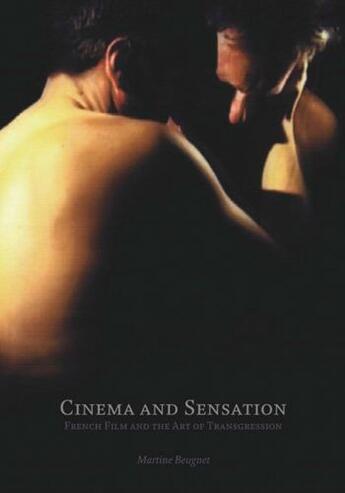Des idées de lecture pour ce début d'année !
Passionné(e) de lecture ? Inscrivez-vous
gratuitement ou connectez-vous pour rejoindre la
communauté et bénéficier de toutes les fonctionnalités du site !

This book looks at a much-debated phenomenon in contemporary cinema: the re-emergence of filmmaking practices (and, by extension, of theoretical approaches) that give precedence to cinema as the medium of the senses.
France offers an intriguing case in point here. A specific sense of momentum comes from the release, in close succession, of a series of films that exemplify a characteristic awareness of cinema's sensory impact and transgressive nature: Adieu; A ma soeur; Baise-moi; Beau Travail; La Blessure; La Captive; Dans ma peau; Demonlover; L'Humanite; Flandres; L'Intrus; Les Invisibles; Lady Chatterley; Lecons de tenebres; Romance; Sombre; Tiresia; Trouble Every Day; Twentynine Palms; Vendredi soir; La Vie nouvelle; Wild Side; Zidane, un portrait du XXIeme siecle. These films, amongst others, typify a willingness to explore cinema's unique capacity to move us both viscerally and intellectually.
Martine Beugnet focuses on the crucial and fertile overlaps that occur between experimental and mainstream cinema. Her book draws on the writings of the likes of Deleuze, Merleau-Ponty and Bataille, but first and foremost, she develops her arguments from the films themselves, from the comprehensive description of specific sequences, techniques and motifs which allows us to engage with the works as material events and as thinking processes. In turn, she demonstrates how the films, envisaged as forms of embodied thought, offer alternative ways of approaching those questions that are at the heart of today's most burning socio-cultural debates: from the growing supremacy of technology, to globalisation, exile and exclusion, these are the issues that appear embedded here in the very texture of images and sounds.
Il n'y a pas encore de discussion sur ce livre
Soyez le premier à en lancer une !

Des idées de lecture pour ce début d'année !

Si certaines sont impressionnantes et effrayantes, d'autres sont drôles et rassurantes !

A gagner : la BD jeunesse adaptée du classique de Mary Shelley !

Caraïbes, 1492. "Ce sont ceux qui ont posé le pied sur ces terres qui ont amené la barbarie, la torture, la cruauté, la destruction des lieux, la mort..."